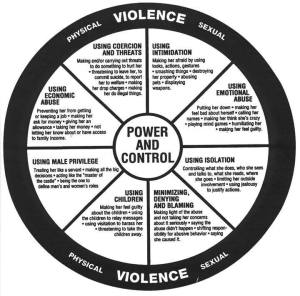
Disclaimer:
I am not a licensed mental health professional and as such, have done no studies or surveys to find out if the healing regime I am going to propose here would actually work on people with NPD. I have no guarantee such a therapy regime would work, but I feel like I’ve done enough reading about the disorder (NPD in particular), both from Internet material written by a number of people, and books by professionals who specialize in this disorder, to outline a possible therapy regime I feel might give sufferers of NPD (as well as BPD and other disorders of the self, and even PTSD) who want to get better some hope of doing so. This is not a therapy I “made up,” since I am not qualified to do so, much less diagnose anyone with any disorder. Instead, it’s an almagamation of several different therapies–drawn from both from traditional insight psychotherapy and alternative therapies proposed by both people who suffer from this disorder or are involved in alternative medicine and spiritual therapy.
For several months I have been reading everything I can about healing Narcissistic Personality Disorder, because as a victim of narcissistic abuse who has cared for and loved people who are narcissists, I have a vested interest in the possibility there may be hope for some of them. I also think our world would be a much nicer and safer place for the rest of us to live in if narcissists could be cured of their disorder!
In my readings, both on the Internet and from books about healing NPD (I just received a copy of James Masterson’s book “The Emerging Self,” recommended to me by fellow blogger BPDTransformation. Although I have not had time to read the book, I have skimmed through it and can already see that its premise of the narcissist getting in touch with their true self and confronting and releasing long buried true emotions of sadness and fear is not much different than therapies others have proposed for NPD).
Overview of Some NPD Healing and Treatment Techniques.
Following are some brief descriptions of some therapies that have already been proposed to heal or treat the symptoms of people with NPD. A few come from traditional psychotherapy disciplines; others are more alternative/experimental.
Cognitive-Behavioral Training/Therapy (CBT)

Currently, the only psychiatrically sanctioned and accepted “therapy” for NPD is Cognitive-Behavioral Training (CBT). CBT is useful and may help some narcissists who are not psychopathic or sociopathic learn to control and monitor some of their more antisocial and hurtful behaviors. It has been used with some success on prison inmates who want to change their behaviors, children with ODD and CD (Oppositional Defiant Disorder and Conduct Disorder) such as 6 year old Beth Thomas, who might have become a psychopath had she not had early intervention that intercepted her early antisocial behaviors and murderous impulses toward her brother and parents; as well as other people with NPD or BPD who are insightful and willing enough to want to change the way they act and stop hurting others.
The problem with CBT is it does not really cure the narcissist (unless done at a very early age, like Beth Thomas). CBT doesn’t address traumatic childhood issues or make the narcissist shed their protective masks or get in touch with the painful emotions that caused them to choose narcissism in the first place. It’s really just a band-aid and probably helps those who must deal with the narcissist more than it helps the patient. The narcissist remains a narcissist, and must constantly monitor their behaviors or be reminded by others to do so. The more positive behaviors never become internalized because the narcissist has not really changed from the inside.
That being said, I believe CBT is a valuable component in the type of therapy I am going to describe, but must be undertaken once the NPD patient has gone through a complete emotional catharsis resulting in the release of painful emotions stemming from childhood (or whenever they “chose” to become a narcissist to protect themselves). I’ll describe how this can be used later in this article.
Narcissists adopted their False Self to survive.
I hold to the probably rather unpopular belief that people with NPD started life as Highly Sensitive People (HSPs) or possibly even empaths. Sam Vaknin’s journal entries, especially his descriptions of himself as a sensitive and generous child who cried when his malignant narcissist mother was upset (I cannot find the link for that right now but will look for it), as well as writings and journals by other NPD sufferers on message boards and forums have made this evident.
It came as a surprise to realize this, because Narcissists (as opposed to those suffering from Antisocial Personality Disorder (ASPD), who really are hopeless and can never get better) seem like the most insensitive and cruel people on the planet. But their obnoxious and cruel behaviors stem from the False Self, not their true one, which hasn’t died, but is atrophied and in hiding. The False Self was constructed as an elaborate defense mechanism to protect the child from further hurt and abuse. Most people with NPD were abused or neglected as children, and being more sensitive than other children, the only way they could survive further hurt and abuse was to construct a False Self which makes them appear big and bad when deep inside, they still feel utterly worthless, despised and vulnerable.

One thing I noticed in all these therapies (not including CBT, of course), is the key to healing is emotional catharsis. Crying–not the usual narcissistic manipulative crying–but deep and honest crying resulting from releasing past pain, grief and fear–is an absolute necessity if any healing is to occur. Of course crying is key in any psychodynamic therapy for any disorder that can be healed by such means, not just NPD. As the False Self breaks down and the True Self begins to emerge, painful emotions from the past will start to be released. This is necessary and healthy. In fact, healing from NPD (or many other mental disorders) isn’t possible without it.
The following are some techniques used for actually healing NPD rather than treating its symptoms. It’s probably prudent to keep in mind their efficacy is iffy at best. If a narcissist is neither insightful nor willing, none of these therapies will work. Insight and willingness to change are necessary and must come from the narcissist him or herself. As I’ve described before, the willingness to heal is a cost-benefit analysis. If the narcissist has benefited from their narcissism, they may not think going through all the emotional work required to heal from NPD is worth it.
1. Attitudinal Healing.

Tony Brown was a self-professed narcissist who decided he no longer wanted to be one. He believed narcissism stemmed from fear. (He’s probably right). He healed himself using a 12-point (not the same as a 12-step program) technique of replacing thoughts of fear with thoughts of love. He called this therapy Attitudinal Healing. Eventually, he says, these thoughts of love and empathy become internalized and the patient begins to remember past hurtful incidents that turned them into narcissists. During this process, the patient finds themselves crying a lot as they remember things long forgotten and the many ways they have hurt their loved ones. AH is kind of a New Age technique, but his followers swear it has worked for them. Tony Brown died in 2008 of natural causes, just after he was cured. His forum, HealNPD, is no longer active, but you can read his material about AH there and posts by others who were undergoing AH to heal themselves of narcissism.
Criticisms of AH: There’s some skepticism because there have been no studies or empirical evidence for AH’s efficacy, and some believe thought-replacing isn’t deep psychology and therefore can’t access the true self.
2. Reparenting.

“Reparenting” is a term used by Sam Vaknin for his theories of healing NPD, but the techniques involved are not his alone and partly derive from New Age therapy practices and traditional psychodynamic therapy and Freudian psychoanalysis. Reparenting requires an initial accidental or intentional removal of all the narcissist’s sources of narcissistic supply, which sets into motion a “narcissistic crisis” (a time during which the narcissist’s defenses and masks break down). This is the only time a narcissist may present themselves for treatment. At that point, the therapist offers only “cold empathy,” which means giving the narcissist acknowledgment and the “mirroring” they missed out n as children, without offering approval, criticism, sympathy for the narcissist’s plight, or any other means of narcissistic supply. The narcissist’s frustration and anger with the therapist (transference) for only mirroring them but not giving them the supply they want (validation or approval) results first in rage, then dissolves into emotional catharsis and release of negative and painful emotions associated with childhood abuse and neglect.
Criticisms of Reparenting: Intensive therapy like this could not practically work unless the narcissist was in a closely supervised setting, such a a rehab center or hospital, because of the strong possibility that even a willing narcissist, when undergoing such painful cathartic emotions, would suddenly leave therapy and go back to their old ways. I personally don’t believe such a therapy would work permanently unless combined or followed up with behavioral training such as CBT to retrain the conscience and internalize it into the psyche.
3. M. Scott Peck: “Remothering” and physical touch.

Dr. M. Scott Peck proposed a technique similar to reparenting called “remothering” in his book “People of the Lie: The Hope for Healing Human Evil.” Peck doesn’t go into great detail about re-mothering a patient in his book (and in fact doesn’t discuss treatment much at all outside of exorcism), but in his description of his malignantly narcissistic patient Charlene, he expresses his regret that he had not offered her unconditional love and support (not the same as narcissistic supply) and actually physically holding her as a mother would a baby, instead of allowing her to manipulate and torment him and making him continue to pander to her need for narcissistic supply.
Criticisms of “remothering”/physical holding: Peck’s briefly expressed ideas of holding (in a nonsexual way) and nurturing such a patient as a loving mother would are similar to reparenting, but would require the narcissist to be willing to allow themselves to become vulnerable enough to undergo such a treatment, which is unlikely unless they were undergoing a severe narcissistic crisis and utterly desperate. There’s also the problem that physically touching/holding a patient could lead to accusations of sexual abuse, or sexual feelings between the patient and therapist (which is a common but questionable outcome of transference/countertransference).
The problems of possible legal allegations of sexual abuse/harassment are addressed here, and there is a consent form in some states a patient can fill out to give permission for limited touching in therapy sessions to occur.
4. M. Scott Peck: Exorcism.

Peck, a born-again Christian, believes that many cases of narcissism are a result of a malignant entity entering the body of the patient, at the time they made the choice to become a narcissist, whether in childhood or later in life.
In some cases, where the possession by an evil entity is not complete (that is, a patient with narcissistic tendencies who is not psychopathic or malignant), a patient can be healed through the centuries old religious rite of exorcism, formerly only sanctioned by the Catholic Church, and even then, was only approved in extreme cases that were approved by the Pope. Peck believes any highly trained psychotherapist with a strong faith in God (not necessarily Christian) and with strong unconditional love for their patient can successfully perform an exorcism on a patient who is willing and properly prepared ahead of time. Peck writes about exorcism in both “People of the Lie” and goes into more detail about the two exorcisms he successfully performed in his later 2005 book, “Glimpses of the Devil.”
Criticisms of Exorcism: Besides its obvious medieval and superstitious connotations, exorcism can be physically, mentally and spiritually dangerous for both the therapist and patient. Death is a possible result. There should be others in the room during the exorcism if additional hands are needed to control the patient undergoing the rite. But because I believe NPD is as much a spiritual disorder as it is a mental one, I don’t think exorcism should be dismissed as a possible healing technique in extreme cases where other therapies have not worked.
5. Dr. James F. Masterson: Psychodynamic Treatment of Narcissistic Disorders of the Self.

I have not yet read his book “The Emerging Self” (I just received it in the mail) but from what I have seen, the therapy is psychodynamic (as opposed to merely behavioral) and requires the patient to confront and purge past hurts and undergo catharsis. Narcissism and “closet narcissism” are not the only disorders addressed in his book; he also addresses similar disorders such as BPD which can be healed using the same or similar techniques.
From Wikipedia:
Masterson’s subtypes (exhibitionist and closet)
In 1993, James F. Masterson proposed two categories for pathological narcissism, exhibitionist and closet.[40] Both fail to adequately develop an age- and phase- appropriate self because of defects in the quality of psychological nurturing provided, usually by the mother. The exhibitionist narcissist is the one described in DSM-IV and differs from the closet narcissist in several important ways.
The closet narcissist is more likely to be described as having a deflated, inadequate self-perception and greater awareness of emptiness within. The exhibitionist narcissist would be described as having an inflated, grandiose self-perception with little or no conscious awareness of the emptiness within. Such a person would assume that this condition was normal and that others were just like them. [Masterson’s definition of the closet narcissist sounds more similar to the “covert” narcissist or “inverted” narcissist Sam Vaknin discusses on his website].
The closet narcissist seeks constant approval from others and appears similar to the borderline in the need to please others. The exhibitionist narcissist seeks perfect admiration all the time from others.
Criticism of Masterson’s techniques of treating NPD: I cannot offer any criticisms as I have not read his book yet.
6. Rebirthing.

Rebirthing session.
Rebirthing is a controversial New Age healing technique that involves deep and circular breathing. It has been proposed as an alternative healing therapy for people suffering from NPD and many other mental disorders, as well as for healthy individuals who just want to get more in touch with their spiritual nature. It’s supposed to improved the mental, emotional and spiritual well-being of anyone who decides to undergo this process. During the rebirthing process, the patient will begin to remember painful emotional incidents long forgotten and crying is common, but is usually followed up by laughter and a feeling of spiritual lightness.
Criticisms of Rebirthing: The type of deep breathing rebirthing requires can lead to hyperventilation and a feeling of being high (from intaking too much oxygen) or having left the physical body. In some cases it can freak out the patient or even cause a psychotic break, much like hallucinogenic drugs can. Because it’s an experimental, alternative therapy given by practitioners not schooled in traditional psychotherapy, there is no proof of its efficacy or empirical studies showing it actually works.
Skepticism among mental health professionals.
pIt must be said, that most professionals are highly skeptical about the possibility of healing (rather than just treating) NPD and feel that because they suffer less than their victims (or at least seem to), that it’s best to treat the victims for the PTSD, anxiety, depression and other disorders their narcissist has caused in them.
I won’t argue with this, but as I’ve said before, I don’t think narcissists, at least those with both the insight and willingness to change (which probably means the non-malignant, non-psychopathic types) are as hopeless as most mental health experts claim.
So I’m going to propose a healing regime here using a hypothetical man named Stephen that comprises elements of ALL of the above techniques (except rebirthing and exorcism due to their highly controversial nature), as well as CBT for helping to retrain the conscience.
There are a few prerequisites necessary for successful healing of NPD:
1. The narcissist must have insight into their disorder and know they have NPD and see how it damages their minds and souls. But insight alone isn’t enough.
2. The narcissist must have willingness to change from the inside–and that means a willingness to undergo intense emotional pain as their True Self begins to emerge and their masks break down. You can have insight without willingness, but not willingness without insight. Both must be present for change to occur.
3. The narcissist undergoing such treatment would be best treated in a highly supervised, even residential setting such as a hospital or rehab center, where their natural tendency to revert back to their old ways of behaving could be intercepted by trained professionals. This is especially necessary during the crisis period where their painful emotions may cause them to want to quit therapy or leave. They could sign a waiver prior to treatment that such attempts to escape would be intercepted or not allowed, and the patient brought back to treatment.
4. The narcissist is probably already undergoing a narcissistic crisis where they have lost all sources of narcissistic supply or a major one, such as a divorce, loss of a fortune or career, death of someone who was a source of supply, serious illness or incarceration. Having lost their sources of supply, the narcissist is already in a vulnerable state and if they are going to present themselves for help, this will be the time.
I am going to describe a hypothetical successful therapy used on a fictional man named Stephen who is afflicted with mid-spectrum (non-malignant) NPD, using a combination of the above techniques I think could be successful for some narcissists in a highly supervised and intensive setting.
STEPHEN’S STORY

1. The Master of the Universe has a Narcissistic Crisis
Stephen was a 45 year old successful owner of a video game company. He was married to a meek and quiet but intelligent woman named Lisa who elected to stay at home with their only child Cayden, who was two years old. They lived in a large home they built themselves, and owned two late model SUVs. Stephen could afford to take his wife and son on several vacations a year. To outsiders, they seemed like the picture perfect family.
But all was not well behind closed doors. Lisa was threatening to leave Stephen and take Cayden with her because of Stephen’s constant gaslighting, projecting, blaming her for their child’s excessive crying and misbehavior, and most recently, isolating Lisa from her former college friends and even her family. Lisa was so depressed that often she had no energy to take care of her son and Cayden was left to his own devices, at first crying and demanding attention from Lisa, but finally withdrawing into a quiet, withdrawn, almost autistic world of his own.
Lisa wanted to take Cayden to a psychiatrist, but when she proposed this to Stephen, he flew into a rage and accused her of calling him a bad father. He told her that if she was a better wife and mother, Cayden wouldn’t be having these problems. He also told her that taking Cayden to a therapist was something only a weak person would do. Cayden would just need to learn to “man up,” in Stephen’s words.
Lisa became increasingly depressed and one day she attempted suicide. Her suicide attempt landed her in the psychiatric ward, and Cayden’s care fell on Stephen’s shoulders. He resented his fatherly duties to Cayden, and grew increasingly impatient with him, and Cayden’s behavior grew worse. He resented having to leave work early or not come in to attend to one of Cayden’s many needs when his nanny would call saying there was a problem with his son.

One day Stephen was called into his boss’s office and confronted with his poor attendance and sloppy work. Cayden’s needs were not a concern to management. Stephen was told he needed to find some other arrangements or he would be let go. Stephen panicked. His high flying job and the money he made were the only things in his life he cared about. He hated to admit it, but Cayden was nothing but a burden. He had never really wanted a child at all due to all the responsibility.
Stephen’s problems continued. He had no choice but to keep leaving work when his son was sick or when the daycare center called saying he was throwing another one of his uncontrollable tantrums. Stephens’s boss summoned him once more and let him know he was being let go.
Stephen was devastated and began to feel hate toward his son for making him lose his job. He sat at home dejectedly staring at the TV or computer screen but felt so deflated he didn’t bother looking for another job. Cayden screamed and threw tantrums and Stephen, overwhelmed and filled with resentment for Cayden, began to physically abuse him.
A week later, Lisa was released from the hospital and announced she no longer loved Stephen and was taking Cayden with her to live with her parents. Stephen flew into a narcissistic rage and tied to stop Lisa from leaving, but there was no stopping her. She grabbed Cayden, tossed some of their things hastily in some bags, and took off for her mother’s. It was then she noticed the bruises on Cayden’s body and decided to press child abuse charges against Stephen.
Stephen was eventually arrested for child abuse. Now he had a police record and was probably unemployable, except perhaps in some sort of consulting role. He had lost his wife, his job, his child, and now his freedom.
2. Self-awareness and willingness.

In prison, Stephen broke down and cried almost nonstop. He made no friends because of his emotional instability. So he spent time by himself, reading books in the prison’s library about mental disorders and realized he suffered from Narcissistic Personality Disorder. At first he tried to deny this to himself, but in his heart he knew it was true. He also realized this disorder was the cause of all his problems. He didn’t feel remorse, exactly, but knew he needed to do something about it. Some of the prison staff took pity on Stephen and referred him to a psychologist who specialized in character disorders, NPD in particular. Stephen was desperate to change his ways and willingly entered an experimental but intensive therapy for people suffering from NPD and other character disorders like BPD. Although the therapist was a licensed Ph.D, he was open to incorporating alternative techniques in his regime.
3. Cold empathy.

Narcissistic rage.
Stephen started therapy (which he was taken to from the prison) with a litany of complaints about his failures and how no one understood him. He talked about his dickhead of a boss, his emotionally disturbed and annoying son, and his bitch of a wife who betrayed him. Stephen took no responsibility for his own contributions to his downfall. He demanded sympathy and often resorted to rages and tears during his sessions. Rather than sympathize or offer emotional support, Stephen’s therapist listened quietly to his litany of woes, only nodding here and there or asking questions when he needed to know something pertinent.
Stephen became enraged by his therapist’s supposed lack of caring and sympathy, and began to attack his therapist, calling him a charlatan, incompetent, and an idiot. He threatened to leave, but knew the prison wouldn’t allow him to quit, so his abuse escalated. Projecting his own feelings of rage and other emotions onto the therapist is a process called transference in the psychiatric community (the opposite, the therapist’s projections of their own emotions onto the patient is called countertransference and is nearly as common).
One day he became so enraged he physically attacked his therapist. An officer was called in to intervene, and together, they got Stephen to calm down. Stephen, defeated, slumped in his chair and dissolved into convulsive sobs. The guard stood nearby, and the therapist quietly waited for Stephen to finish crying.
4. Stephen’s True Self begins to Emerge.

After several more intense sessions like these, Stephen reluctantly began to talk about his mother, who had abused him as a child. He tearfully discussed the time she held his hands on the hot stove to teach him a lesson, and the time she locked him in a closet for two days for refusal to eat the vegetables on his plate. After releasing him, she made him eat the half-rotted vegetables from a plate on the floor along with the family dogs. Stephen recalled being a good kid until he was about 5 or 6, and always very sensitive to his mother’s moods. He wanted to please her, but never could seem to accomplish that. No matter what he tried–bringing her flowers he picked from the garden (which he’d be punished for), or hugging her (where he’d be pushed away), she always rejected him or punished him. At first he talked about these incidents in a matter of fact, almost flippant way, but after about three more sessions, he began to choke up and tears began to run down his face.
But these tears were different than the ones he used to shed to get his way or manipulate his sources of supply. These tears felt different and came from a deeper, more honest place. He was embarrassed about the uncontrollable crying he could not seem to stop. He tried to hide these tears but his therapist told him they were healing him, melting away his False Self, and to let them come. So reluctantly at first, Stephen did. He told his therapist his “heart hurt” and then he broke into wracking sobs and buried his face in his hands. This was the breakthrough needed to move to the the Reparenting/remothering level.
In some difficult cases where he patient is having trouble bringing emotions to the surface or recalling past events, hypnotherapy could be useful in helping the patient recall painful childhood experiences.
5. Reparenting Stephen’s Lost Self.

When Stephen broke down into convulsive sobbing of honest grief for the mother love he never received, and his intense fear of her as a child, his therapist knew he was no longer being manipulated and these were honest emotions from Stephen’s lost self. So the therapist came over and sat down next to him, and encouraged Stephen to cry on his shoulder. If the therapist is an empath, I think that’s an enormous advantage, for I feel that for this type of therapy to have the most success, the therapist must be able to share and feel the patient’s emotions–even if that means crying or grieving along with them. This may also make the patient feel less alone and more comfortable if they are not feeling their emotions alone.
Stephen, in his infantile, vulnerable state, didn’t hesitate to let his tears flow and allow himself to be held, and they stayed like this for a long time. The therapist was careful to stay quiet during this event, and limited himself to stroking Stephen’s head and back and holding him gently as a mother would hold a child. He did not offer judgment, congratulations or explanations. He simply let Stephen release all that pent-up emotion that had been hiding inside him for decades. And felt along with the child that still lived inside Stephen and longed to be able to live a normal, happy life in the world instead of forever hidden away behind Stephen’s disintegrating False Self.
Stephen felt comforted and nurtured. He told his therapist he wished his own parents had held him like that. His father never had either, because he had died in an accident when Stephen was only a baby.
Several more sessions passed like this. In each session Stephen remembered other things that had happened to him as a child. He remembered how sensitive he had been and how he felt hurt by everything. He remembered how much his mother hated it whenever he cried. He remembered being bullied by other kids in school and always running away in terror.
And then he remembered when he had to make a choice. That choice changed the trajectory of his entire life and transformed him from a highly sensitive little boy into a heartless and cold narcissist.
6. The Choice.

Stephen recalled a dare when he was 8 years old. A group of boys who had bullied him dared him to set a paper bag of dried dog poop on another boy’s rickety wooden front porch and set it on fire. The boys promised him that if he did this, they would no longer bully him and they would be his friend and protect him against any further bullying. Stephen knew that doing this could set the other boy’s house on fire and at first he protested, explaining what could happen. At this point he still had a conscience. But the boys threatened him and told him if he didn’t do it, their bullying would become worse and they would kill his pet rabbit. Stephen believed them, so against his will, he complied.
They set out after dark for the targeted house. The boys watched from the darkened yard as Stephen lit the paper bag on fire and hesitantly walked up the front stairs of the boy’s porch and set it next to a dead potted plant. The deed done, all the boys ran away before anyone saw them. Stephen looked back in time to see the flames ignite the plant, and quickly start to spread over the railings of the rickety old wooden porch. He felt awful and considered going to the police, but he didn’t dare. He went to bed that night and had terrible nightmares.

The targeted boy’s house burned down and he, his baby sister, and his mother had to be taken to the hospital to be treated for smoke inhalation. Soon after, the family moved away, never to be seen again. No charges were pressed because no one knew who the culprit was.
7. Becoming a Narcissist.

To protect himself from his unbearable feelings of guilt and shame, Stephen shut off his painful emotions of guilt and conscience. From then on, the group of bullies accepted him as one of them, and they continued to engage in tormenting other children and even petty crimes.
Almost immediately after the incident, Stephen’s personality changed. Due to his choice to disobey his own conscience, he was becoming evil. He became a narcissist to protect himself from any further painful feelings. It was all just too unbearable.
Stephen confessed not only this, but also the way he used and manipulated others for his own gain, how he obtained his high level job dishonestly by faking qualifications on his resume, the way he emotionally abused his codependent wife who was so easily manipulated, and the abusive way he treated his own son Cayden. He cried and cried some more, and in return, his therapist held him without speaking, only projecting unconditional love and acceptance.
8. Return to Humanity.

Within a few more weeks, Stephen felt like a different person. He had become a model prisoner, and also found God during his incarceration. He was asked by the chaplain to speak to prisoners after the Sunday services, and Stephen used his own story to help and motivate other prisoners. He proved to be a good public speaker, and took courses in psychology and motivational speaking. He started to write a book about his experiences.
Stephen’s therapy was followed up with an intensive outpatient CBT program, to help him internalize the lessons he had learned about right versus wrong, and further help him develop his fledgling conscience.
When finally released from prison after two years, Stephen found employment as a counselor for prisoners and became a professional motivational speaker. He published his book, which became a best seller. He was asked to appear on TV shows and interviews to promote his new book and offered hope to thousands. Soon he met and married a psychology professor and today they have three children, who he loves very much. He would never dream of abusing them. He’s a very involved father and admits he’s happier than he’s ever been.
Recently he met up with his prison therapist, and the therapist noticed Stephen’s eyes and whole face looked different. He looked younger and happier, but more tellingly, in place of the cold, dead eyes of the narcissist he used to be, Stephen’s eyes sparkled with love and joy. His smile, instead of a sneer, was genuine and happy.

































